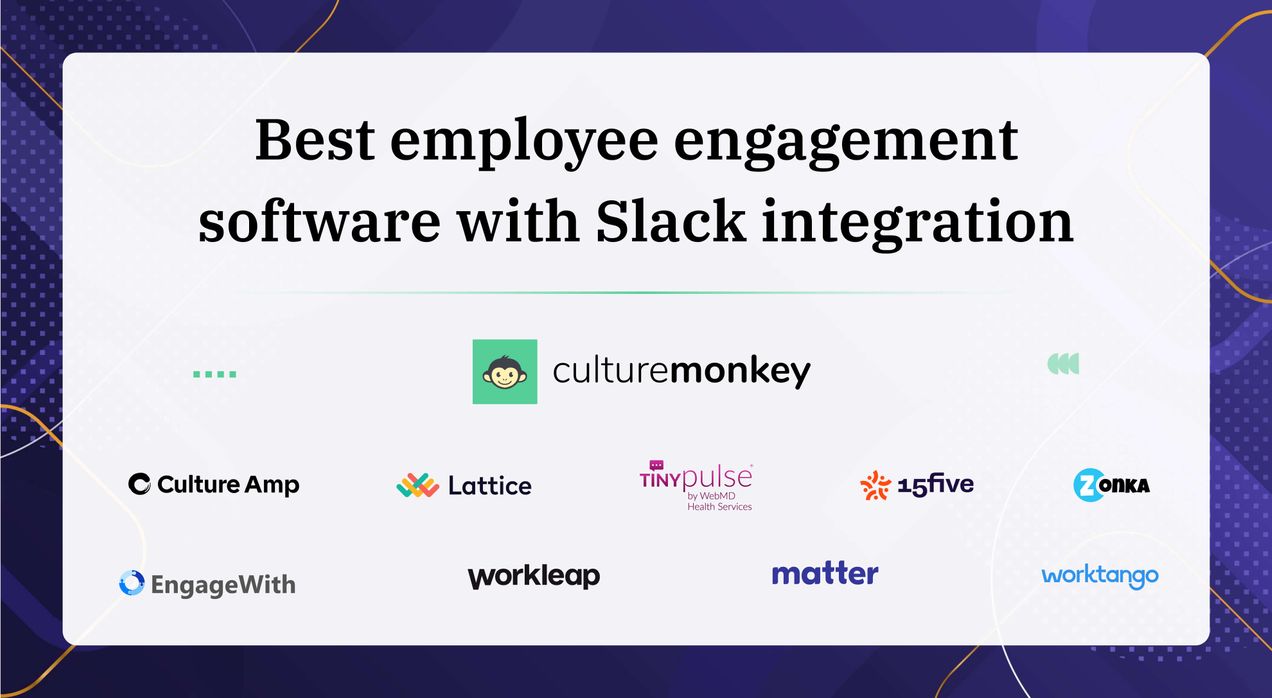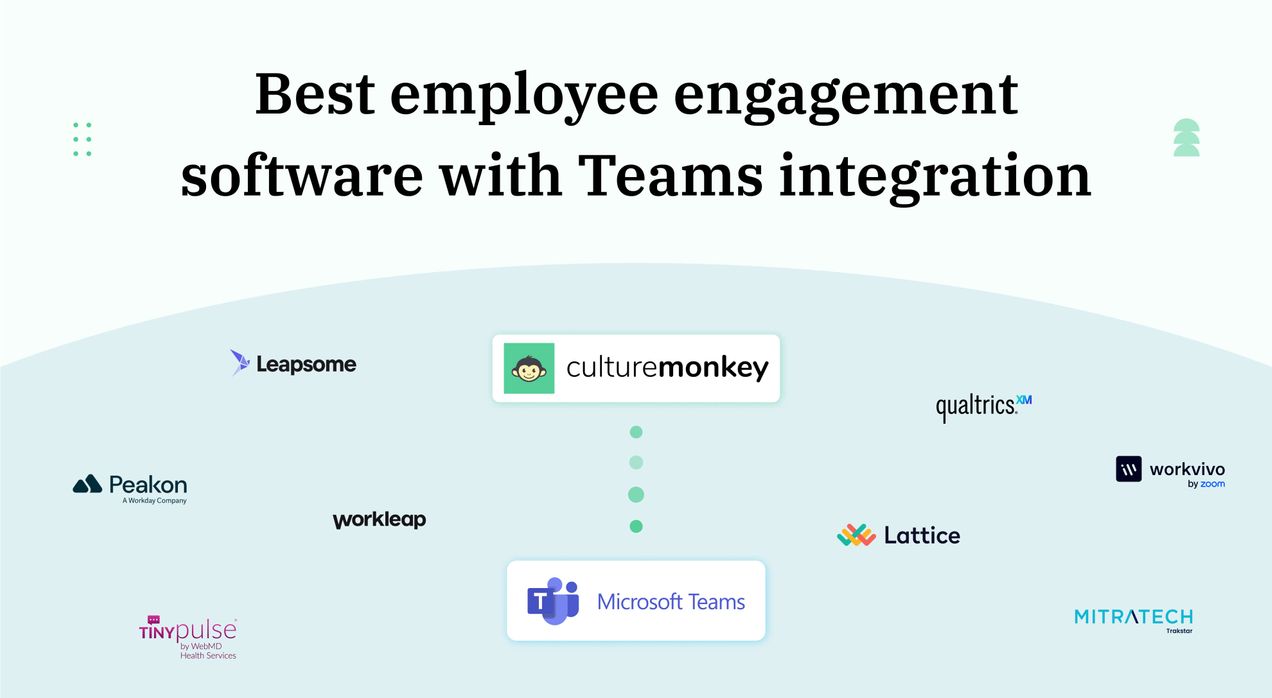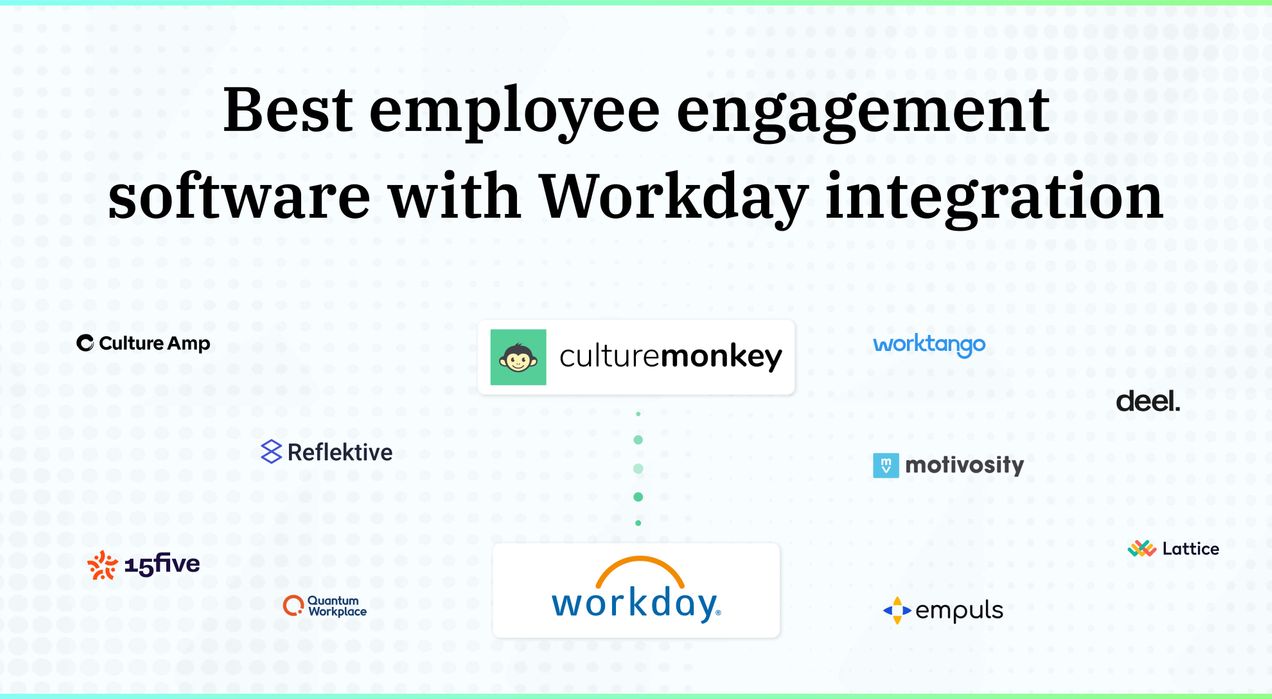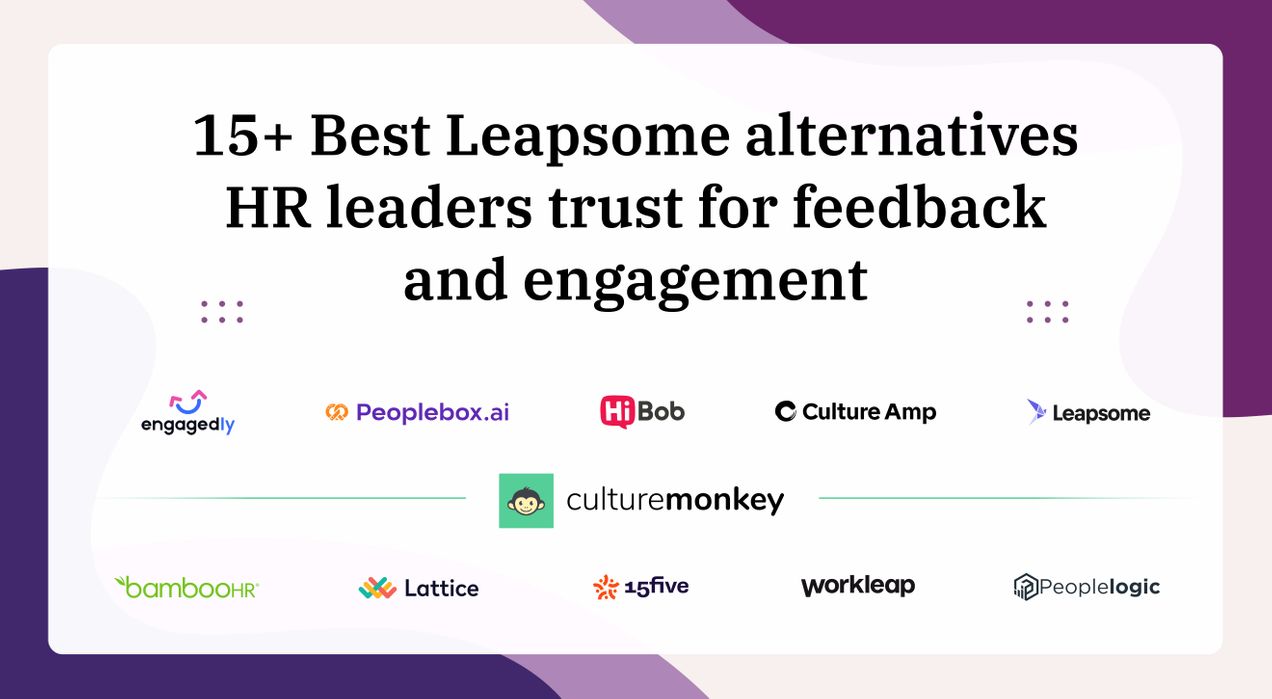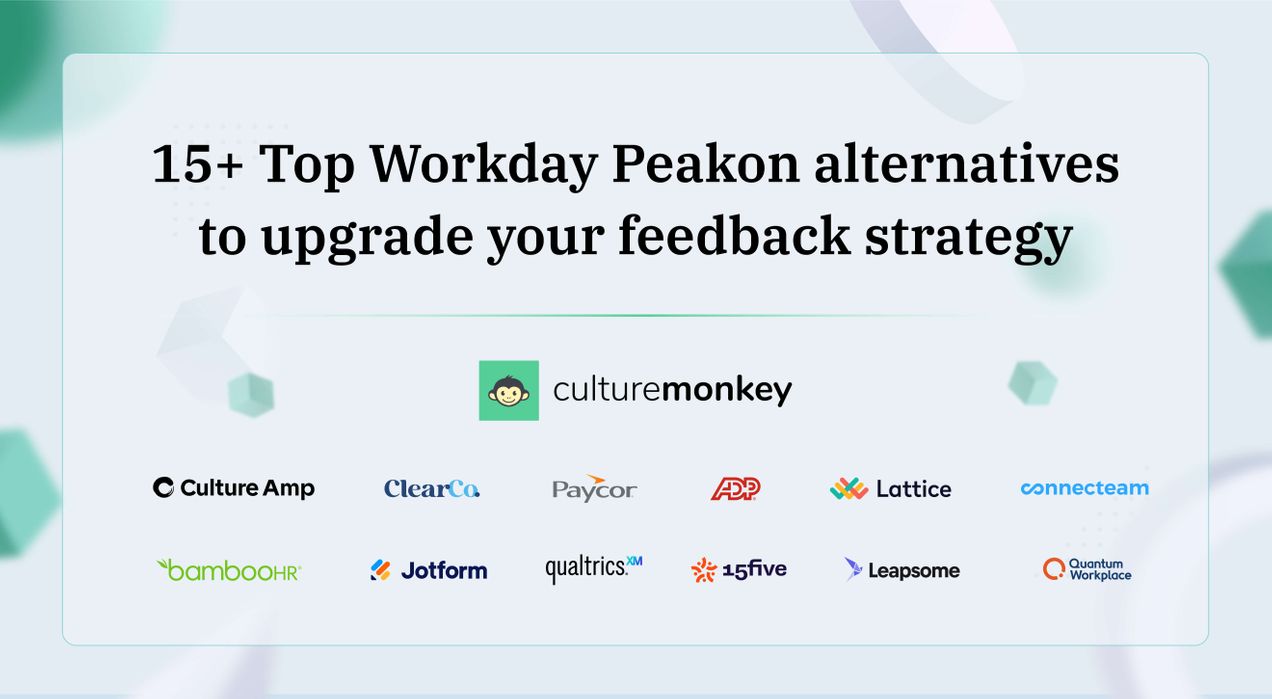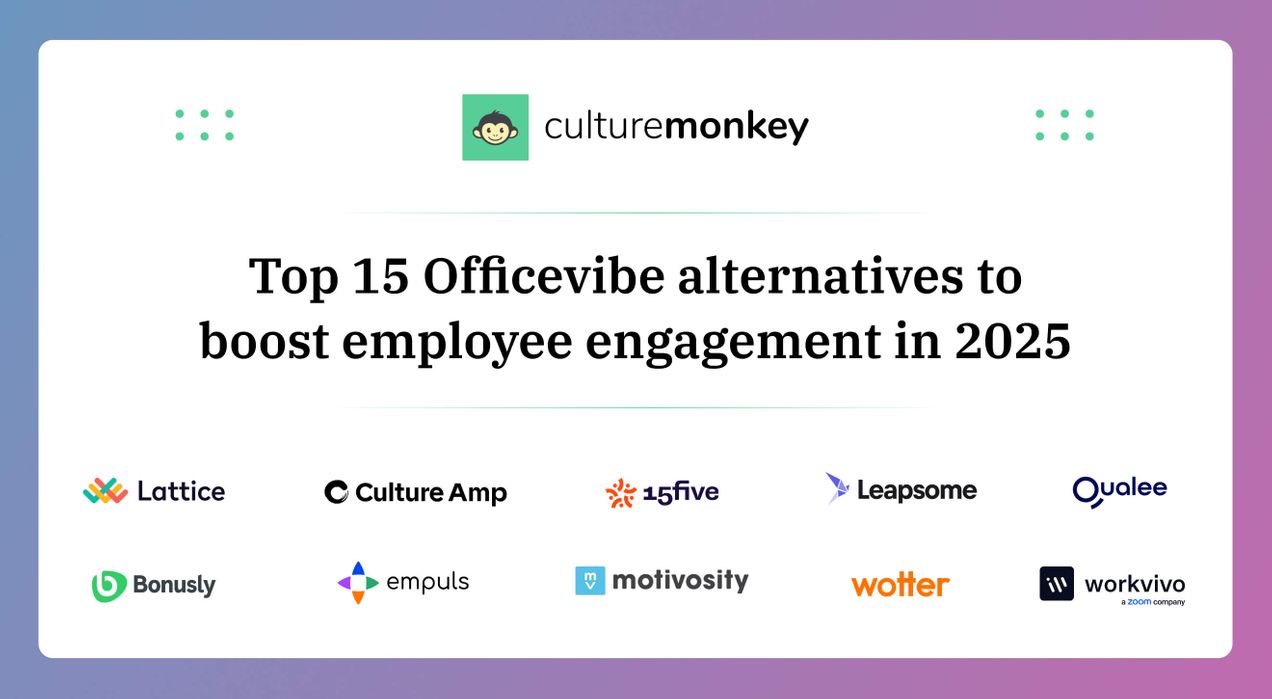Measuring employee sentiment in financial services: a practical guide for banks and institutions
Measuring employee sentiment in financial services is the practice of understanding how employees feel about their work, leadership, and environment to detect risks early, strengthen trust, improve performance, and support retention in regulated, high-pressure organizations.
20 Ways to strengthen manufacturing manager effectiveness and engagement
Manufacturing manager effectiveness and engagement explains how managers lead, communicate, and act daily to align teams, build trust, reduce friction, and sustain performance by translating goals into clear actions across shifts, safety, and output now.
Best employee engagement software with Slack integration
Seamlessly run surveys, collect feedback, and boost engagement without leaving Slack. This guide explores the best employee engagement software with native Slack integration—featuring CultureMonkey and other top tools—to streamline participation, ensure anonymity, and drive real-time insights.
Best employee engagement software with Teams integration
Seamlessly run surveys, gather feedback, and drive higher participation without leaving Microsoft Teams. This guide highlights the best employee engagement software with native Teams integration, featuring CultureMonkey alongside other leading tools, to simplify survey delivery for HR and managers.
15 Manufacturing workforce communication challenges holding back today’s factories
Manufacturing workforce communication challenges arise when information fails to travel clearly across shifts, roles, languages, and tools on the factory floor. These gaps cause missed handovers, delayed updates, safety risks, low morale, and execution issues, even when leadership intent is clear.
Best employee engagement software with Workday integration
Seamlessly run surveys, automate feedback, and gain real-time insights with Workday-connected tools. This guide features the best employee engagement software with Workday integration, including CultureMonkey, to help HR teams deliver timely, data-driven engagement at scale.
Employee feedback management solution: 2026 guide to AI-powered listening
Employee expectations have evolved, and fast. In 2026, a once-a-year feedback form won’t cut it. Today’s teams expect continuous conversations, real-time responsiveness, and clear proof of employee development that their voices actually drive change.
What an effective eNPS survey template should look like in 2026
A practical guide to eNPS templates: what eNPS measures, core and follow up questions, template types, and how to turn scores into real culture engagement and retention improvements across all teams!
15+ Best Leapsome alternatives HR leaders trust for feedback and engagement
Looking for alternatives to Leapsome for your engagement survey needs? Explore these 15+ top-rated platforms offering diverse features like customizable surveys, real-time analytics, and actionable insights to enhance engagement. There are solutions tailored to meet your specific requirements.
15+ Top Workday Peakon alternatives to upgrade your feedback strategy
Looking for Peakon alternatives? Explore survey platforms with smarter analytics, customizable templates, and real-time action planning. Discover tools that help you capture meaningful feedback and transform employee sentiment into measurable engagement outcomes.
A complete guide to third party survey companies for employee engagement in 2026
Explore the top 7 employee third-party survey companies and discover how they help HR leaders capture honest feedback, improve engagement, and strengthen workplace culture. Learn how the right external partner ensures anonymity, builds trust, and turns survey results into actionable insights.
Top 15 Officevibe alternatives to boost employee engagement in 2026
Looking for Officevibe alternatives? Discover platforms that go beyond the basics with customizable surveys, deeper analytics, & advanced engagement features. Explore options tailored to your team’s evolving needs, so you can build a more connected, data-driven, & high-performing workplace culture.
Best 20+ Qualtrics alternatives for enterprises and SMBs in 2026
Exploring Qualtrics employee experience alternatives can help your organization find the best fit for your needs. Whether you're looking for more customization, better pricing, or advanced features, this blog will guide you through the top options to enhance your employee engagement.
Job satisfaction survey template for enterprises: A strategic guide (2026)
A job satisfaction survey template is a structured framework HR teams use to measure how employees feel about their roles, leadership, recognition, and growth. It ensures consistent questions, captures honest feedback, enables benchmarking across teams, & turns insights into actionable improvements.
Employee insights: How to unlock smarter decisions and drive engagement in 2026
Employee insights are the patterns, perceptions, and signals you gather from your workforce to understand how they think, feel, and behave at work. They go beyond surface-level feedback and help leaders interpret what employees actually experience day to day.
How to measure and improve employee satisfaction rate: a complete guide for HR leaders
The employee satisfaction rate measures how content and fulfilled employees feel about their workplace, job roles, and experience within the organization. It acts as a thermometer for workplace satisfaction, providing insights into employee morale, engagement, and potential areas of improvement.
13 Strategies to drive manager effectiveness in workplaces
Manager effectiveness refers to how well a manager achieves business outcomes through their team while maintaining a healthy, motivated, and productive work environment. It’s not just about hitting performance targets, but the ability to influence, guide, and empower people to perform at their best.
How to improve employee net promoter score and boost workplace loyalty?
A low employee net promoter score doesn’t just happen overnight, it’s usually a reflection of ongoing issues that slowly chip away at trust, motivation, and connection. Poor work-life balance is a common underlying cause, often leading to burnout and disengagement.
Pulse survey action plan for HR teams that want real change
A pulse survey action plan is the structured roadmap HR and people teams use to turn employee feedback into clear, measurable steps for improvement. After running a pulse survey, which captures quick, real-time insights into employee sentiment, the action plan outlines what happens next.
50+ Employee recognition ideas to celebrate your team in 2026
Employee recognition is about making people feel genuinely valued for their contributions and impact. When employees know their work is seen and appreciated, they’re more engaged, employees feel motivated and loyal.
Employee satisfaction survey form: Perfect questionnaire to know your people in 2026
An employee satisfaction survey form helps leaders measure satisfaction, gather feedback, and improve engagement. This guide explores benefits, tips, and tools with a free ready-to-use template, making surveys smarter, simpler, and more impactful for every workplace.
Employee engagement survey invitation email sample: Boosting participation with a perfect message
An employee engagement survey invitation email invites staff to share honest feedback. It explains the survey’s goal, assures confidentiality, and shows how insights will help improve engagement, culture, and the overall employee experience.
Employee development plan template: How to help your team grow with clarity in 2026
An employee development plan template is a structured roadmap that outlines goals, skills, and actions to help employees grow, align with business objectives, and advance their careers.
Deskless workforce communication problems: Why it’s broken and how to fix it in 2025
The global workforce, particularly the deskless workforce, includes employees who spend little to no time working at a traditional desk or office environment. They’re the people keeping operations running in the field, on the shop floor, or face-to-face with customers.







